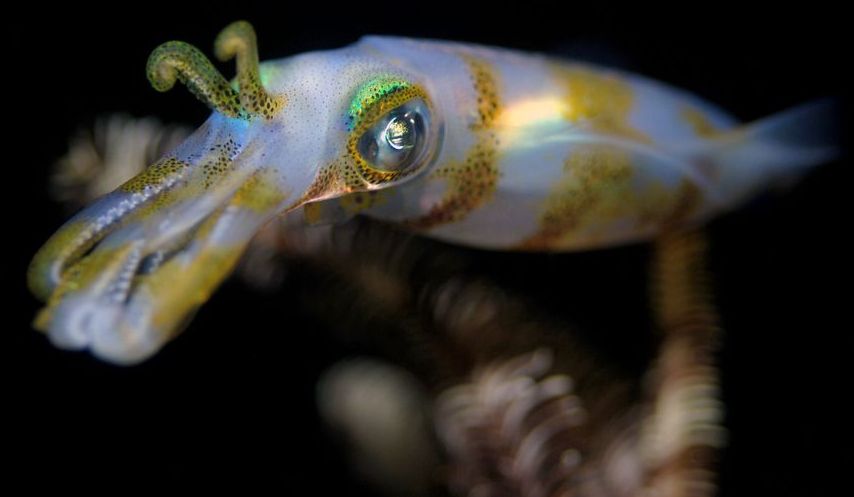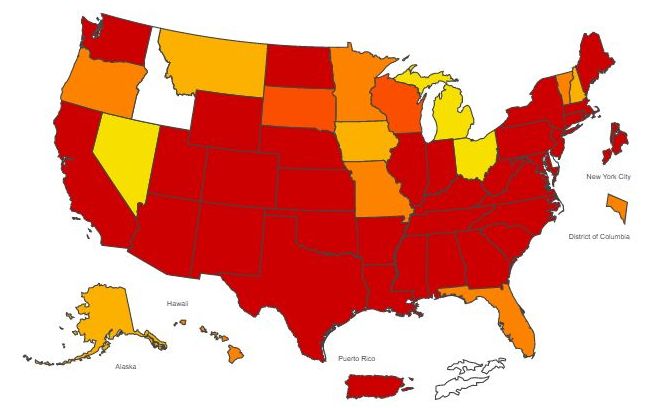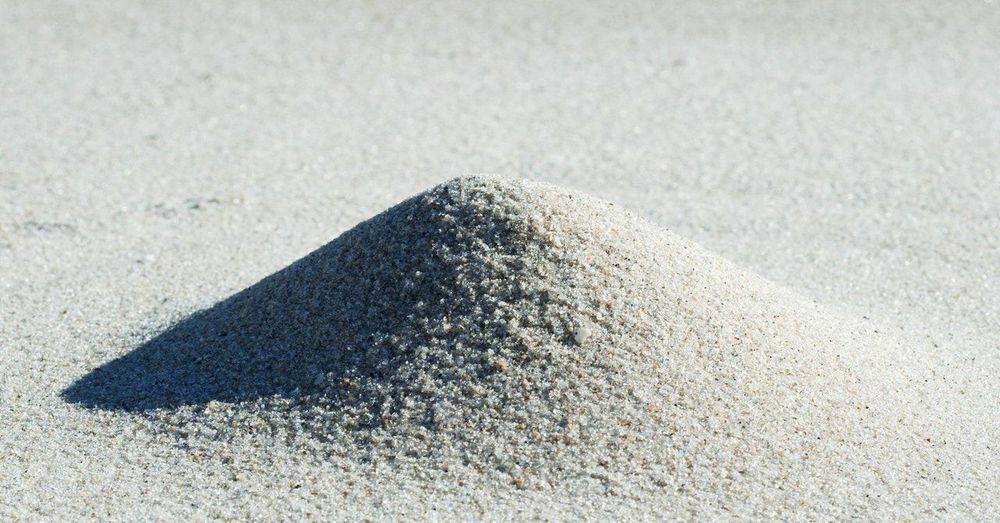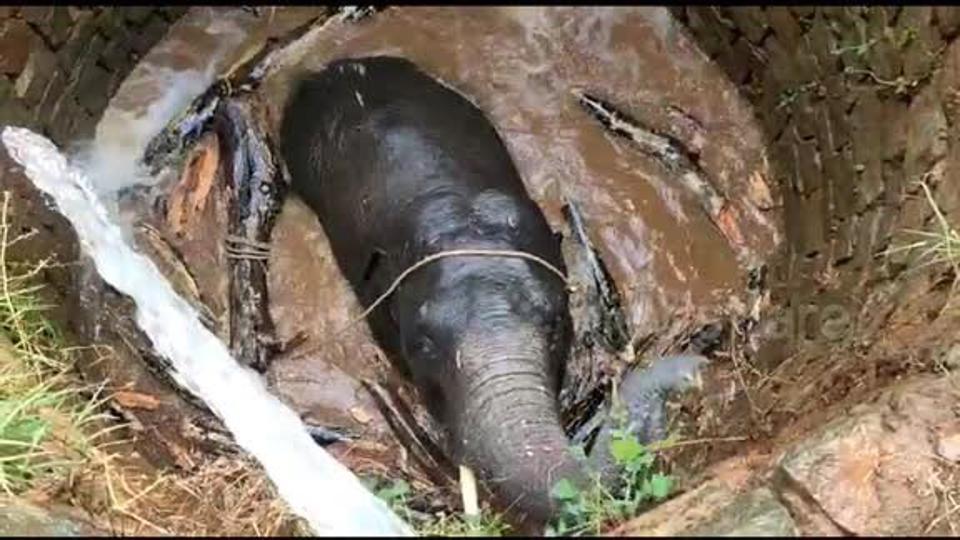Page 7346
Feb 1, 2020
MRI scans delve into dog-like complexity of squid brains
Posted by Genevieve Klien in categories: biotech/medical, neuroscience
New research led by Wen-Sung Chung and Justin Marshall of the University of Queensland is shedding new light on the complexity of squid brains. Using MRI scanning to examine the brain of the of the reef squid Sepioteuthis lessoniana, the researchers have produced a new map of neural connections that improves our understanding of their behavior.
The cephalopods are widely recognized as the most intelligent of mollusks, but how do they rate when they are competing against something other than clams? Cephalopods show all sorts of complex behavior, like being able to recognize patterns, solve problems, communicate through signals, and camouflage themselves in different textures and colors, despite being colorblind.
“We can see that a lot of neural circuits are dedicated to camouflage and visual communication,” says Chung. “Giving the squid a unique ability to evade predators, hunt and conspecific communicate with dynamic color change.”
Feb 1, 2020
Elon Musk’s girlfriend Grimes confirms pregnancy and is struggling through her second trimester
Posted by Tracy R. Atkins in category: Elon Musk

Musk to be a father;
Grimes has shared candid details about her pregnancy struggles in an Instagram message she shared on Friday.
Feb 1, 2020
AI: “The technology is very powerful and potentially very dangerous…”
Posted by Prem Vijaywargi in category: robotics/AI
This article was written by AI
Can you tell?
What are AI applications?
Continue reading “AI: ‘The technology is very powerful and potentially very dangerous…’” »
Feb 1, 2020
Our #Mars2020 rover is almost ready for its mission to the Red Planet
Posted by Fyodor Rouge in category: space
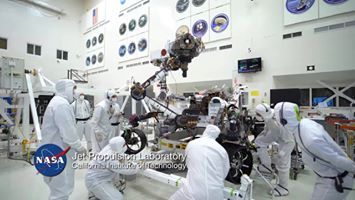
The only thing missing? A name! Calling:
🎒 K-12 students: Name the rover! 📋 Not K-12? Judge the contest! 🗓️ Entry closes Nov.
Learn how YOU can impact our new Martian mission: https://go.nasa.gov/2Jorflp
Feb 1, 2020
Setting the agenda for social science research on the human microbiome
Posted by Xavier Rosseel in categories: biotech/medical, governance, health, policy, science
The human microbiome is an important emergent area of cross, multi and transdisciplinary study. The complexity of this topic leads to conflicting narratives and regulatory challenges. It raises questions about the benefits of its commercialisation and drives debates about alternative models for engaging with its publics, patients and other potential beneficiaries. The social sciences and the humanities have begun to explore the microbiome as an object of empirical study and as an opportunity for theoretical innovation. They can play an important role in facilitating the development of research that is socially relevant, that incorporates cultural norms and expectations around microbes and that investigates how social and biological lives intersect. This is a propitious moment to establish lines of collaboration in the study of the microbiome that incorporate the concerns and capabilities of the social sciences and the humanities together with those of the natural sciences and relevant stakeholders outside academia. This paper presents an agenda for the engagement of the social sciences with microbiome research and its implications for public policy and social change. Our methods were informed by existing multidisciplinary science-policy agenda-setting exercises. We recruited 36 academics and stakeholders and asked them to produce a list of important questions about the microbiome that were in need of further social science research. We refined this initial list into an agenda of 32 questions and organised them into eight themes that both complement and extend existing research trajectories. This agenda was further developed through a structured workshop where 21 of our participants refined the agenda and reflected on the challenges and the limitations of the exercise itself. The agenda identifies the need for research that addresses the implications of the human microbiome for human health, public health, public and private sector research and notions of self and identity. It also suggests new lines of research sensitive to the complexity and heterogeneity of human–microbiome relations, and how these intersect with questions of environmental governance, social and spatial inequality and public engagement with science.
Feb 1, 2020
CDC: Flu deaths reach 10K this season
Posted by Genevieve Klien in category: biotech/medical
Stay aware.
The CDC estimates that so far this season there have been at least 19 million flu illnesses and 180,000 hospitalizations.
Flu was widespread in Puerto Rico and 49 states. In Hawaii, the District of Columbia and the U.S. Virgin Islands, the outbreaks were less active.
Feb 1, 2020
Glowing green ‘dunes’ in the sky mesmerized skygazers. They turned out to be a new kind of aurora
Posted by Nare Khachatryan in category: particle physics
When mysterious glowing stripes of green lit up Finnish skies in 2018, it didn’t go unnoticed by avid aurora chasers. The pattern of light was unfamiliar and strangely perfect, reaching out toward the horizon like a set of celestial sand dunes.
Sure enough, the light show dubbed by the citizen scientists as “the dunes” turned out to be a new type of aurora. This aurora is formed by the dramatic dance of gravity waves and oxygen atoms, according to new findings published today (Jan. 29) in the journal AGU Advances.
Feb 1, 2020
The Ultra-Pure, Super-Secret Sand That Makes Your Phone Possible
Posted by Quinn Sena in categories: computing, mobile phones
O„.o.
The processor that makes your laptop or cell phone work was fabricated using quartz from this obscure Appalachian backwater.
Feb 1, 2020
Elephant rescued from well with physics principle. ‘What an idea,’ says Twitter
Posted by Genevieve Klien in categories: internet, physics
How interesting. Very adorable.
A heartwarming rescue of a baby elephant with the help of physics is winning the Internet. A tweet by IFS officer Ramesh Pandey gives a glimpse of the rescue efforts made by people and officials in Gumla, Jharkhand.
According to the tweet, the forest department along with people from the nearby village rescued the elephant using the Archimedes principle. Officials and locals filled the well with water to help the elephant out. The elephant was rescued without any injury.
Continue reading “Elephant rescued from well with physics principle. ‘What an idea,’ says Twitter” »

